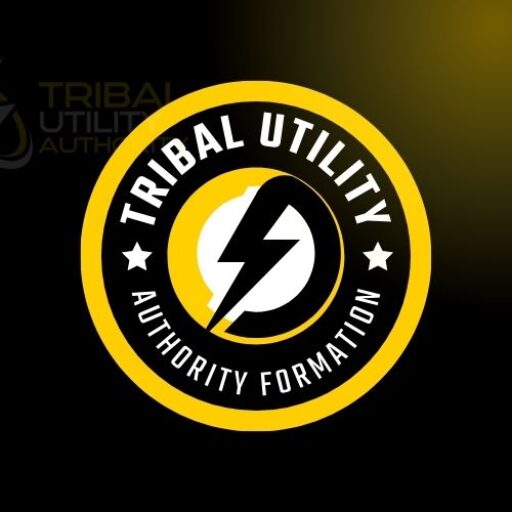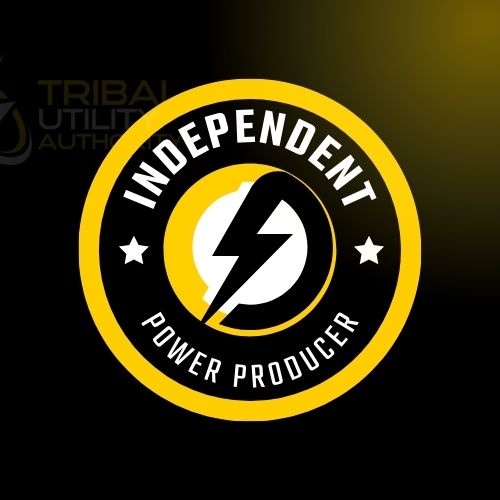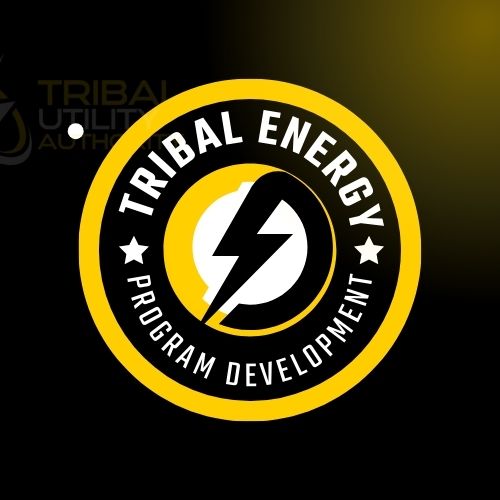Tribal Utility Authority Part IV: Key Federal Laws and Regulations Affecting Tribal Utilities
Tribal Utility Authority | Powered By Red Power Energy
TUA Experts
+1 855-573-3769
Good >Better>Best Options
Key Federal Laws and Regulations Affecting Tribal Utilities
The federal legal framework governing tribal utilities creates a complex web of requirements, opportunities, and obligations that shapes every aspect of utility operations. While this regulatory environment might seem overwhelming at first, understanding these laws and regulations proves essential for successful utility management. Think of this framework as a roadmap – one that guides tribal utilities toward effective service delivery while protecting tribal rights and resources.
At the heart of this framework lies the Indian Self-Determination and Education Assistance Act of 1975. This landmark legislation fundamentally changed how tribes could manage their utilities by allowing them to contract federal services and operate programs independently. The Act’s impact continues to reverberate through tribal utility operations today, providing the foundation for tribal control over essential services while maintaining access to federal support and resources.
Environmental regulations form a significant portion of the federal requirements affecting tribal utilities. The Clean Water Act stands as perhaps the most influential environmental law for tribal water and wastewater operations. This comprehensive legislation establishes basic standards for water quality and wastewater treatment, requiring tribal utilities to maintain specific treatment levels and monitor discharge quality. However, the Act also recognizes tribal authority to establish water quality standards that exceed federal minimums, allowing tribes to protect resources according to their own environmental and cultural values.
The Safe Drinking Water Act similarly impacts tribal water utilities, establishing mandatory standards for drinking water quality and treatment processes. This Act requires regular testing and reporting of water quality parameters, operator certification, and public notification of any violations. For tribal utilities, compliance often involves balancing these requirements with traditional water management practices while ensuring reliable access to safe drinking water for tribal communities.
Air quality regulations, primarily through the Clean Air Act, affect tribal utilities operating power generation facilities or managing air emissions sources. The Act’s tribal provisions enable tribes to develop their own air quality programs, often incorporating standards that reflect specific tribal concerns about air resource protection. For utilities considering energy generation projects, understanding these requirements proves crucial for project planning and compliance.
The National Environmental Policy Act (NEPA) significantly influences tribal utility infrastructure development. This Act requires environmental impact assessments for major federal actions, including many tribal utility projects that receive federal funding. While NEPA compliance can extend project timelines, it also provides opportunities for ensuring that development aligns with tribal environmental and cultural protection goals. Successful tribal utilities learn to integrate NEPA requirements into their project planning processes, using the assessments to improve project designs and build community support.
Federal grant programs provide essential funding for tribal utilities while imposing their own regulatory requirements. The Indian Health Service’s Sanitation Facilities Construction Program, for instance, offers crucial support for water and wastewater infrastructure but requires compliance with specific design and construction standards. Similarly, Environmental Protection Agency grants support various utility programs while mandating particular reporting and performance requirements. Understanding and effectively managing these requirements proves essential for maintaining access to federal funding sources.
The Energy Policy Act includes several provisions specifically affecting tribal utilities, particularly those involved in energy generation or distribution. These provisions support tribal energy development through grants, technical assistance, and regulatory guidance. The Act also addresses renewable energy development on tribal lands, creating opportunities for tribal utilities to diversify their energy sources while promoting sustainability.
Federal rights-of-way regulations significantly impact tribal utility infrastructure development, particularly when facilities must cross multiple jurisdictions. Recent updates to these regulations have strengthened tribal authority over rights-of-way while establishing clearer procedures for obtaining necessary approvals. Understanding these requirements helps tribal utilities plan infrastructure projects effectively and maintain proper documentation for facility locations.
Infrastructure funding programs, including those administered by the Bureau of Indian Affairs and the Department of Agriculture, provide crucial support for tribal utility development while imposing various regulatory requirements. These programs often mandate specific procurement procedures, require detailed project documentation, and establish oversight protocols for funded projects. Successfully navigating these requirements demands careful attention to program guidelines and strong project management practices.
Worker safety regulations, primarily through the Occupational Safety and Health Administration (OSHA), establish mandatory safety standards for utility operations. While tribes may develop their own safety programs, these typically must meet or exceed OSHA requirements. Effective tribal utilities integrate these safety standards into their daily operations, developing comprehensive safety programs that protect workers while maintaining operational efficiency.
KEEP READING BELOW
WIDE RANGE OF TRIBAL UTILITY SERVICES
Do you need Tribal Solar Help ? Look no further!
Leading experts in Tribal Utility Authority formation, IPP development, and PPA negotiation. Transform your tribe's energy infrastructure with comprehensive solutions backed by decades of experience in Indian Country.
- Tribal Utility Authority Formation
- Independent Power Producer Development
- Power Purchase Agreement Negotiation
- Virtual Tribal Energy Office Implementation
- Energy Program Management




Emergency management regulations affect how tribal utilities prepare for and respond to disasters or system failures. The Federal Emergency Management Agency (FEMA) provides guidance and support for emergency planning while requiring specific protocols for disaster response and recovery. Understanding these requirements helps tribal utilities develop effective emergency response plans and maintain eligibility for disaster assistance.
Cybersecurity requirements increasingly affect tribal utilities, particularly those operating automated systems or maintaining sensitive customer data. Federal guidelines establish basic security standards while providing resources for protecting utility systems from cyber threats. As tribal utilities adopt more advanced technologies, maintaining compliance with these requirements becomes increasingly important for system security and reliability.
The Indian Environmental General Assistance Program (GAP) provides another important regulatory framework for tribal utilities. This program supports environmental program development while establishing requirements for capacity building and environmental protection. Many tribal utilities use GAP funding to develop environmental monitoring programs and build technical capacity for utility operations.
Federal procurement regulations affect many aspects of tribal utility operations, particularly when using federal funds for system improvements or operations. These requirements establish standards for purchasing procedures, contractor selection, and project management. Understanding and following these regulations proves essential for maintaining compliance and ensuring effective use of federal resources.
Cultural resource protection laws, including the National Historic Preservation Act and Native American Graves Protection and Repatriation Act, establish requirements for protecting cultural sites and resources during utility operations. These laws require careful consideration of cultural resources during project planning and implementation, often necessitating surveys and consultations before beginning construction or maintenance activities.
The intersection of federal and tribal law creates unique challenges for utility operations. While federal regulations establish minimum standards, tribes often implement additional requirements based on their own needs and values. Successful tribal utilities develop compliance programs that address both sets of requirements while maintaining operational efficiency.
Regular changes in federal regulations require tribal utilities to maintain current knowledge of requirements and adapt operations as needed. This might involve updating operational procedures, modifying monitoring programs, or implementing new safety protocols. Maintaining strong relationships with federal agencies helps utilities stay informed about regulatory changes and access technical assistance when needed.
Documentation requirements permeate federal regulations affecting tribal utilities. Maintaining proper records of compliance activities, monitoring results, and operational decisions proves crucial for demonstrating regulatory compliance and defending tribal interests when questions arise. Effective tribal utilities develop comprehensive documentation systems that track both routine operations and special compliance activities.
Training requirements appear throughout federal regulations affecting tribal utilities. Operator certification, safety training, and environmental monitoring all require specific training programs to maintain compliance. Successful utilities develop comprehensive training programs that address both regulatory requirements and operational needs while building staff capacity for improved service delivery.
Looking ahead, federal regulations affecting tribal utilities continue to evolve in response to new challenges and opportunities. Climate change adaptation, renewable energy development, and technological advancement create new regulatory considerations. Understanding current requirements while maintaining flexibility to adapt to changes helps tribal utilities maintain effective operations while protecting tribal resources and interests.
The complex federal regulatory environment ultimately serves to protect public health, ensure safe utility operations, and support tribal self-determination in service delivery. While compliance requires significant effort and resources, it also provides a framework for developing and maintaining effective utility operations that serve tribal communities while protecting essential resources for future generations.
Understanding and effectively managing federal regulatory requirements remains essential for tribal utility success. This knowledge supports both daily operations and long-term planning while ensuring that utility services meet community needs within established regulatory frameworks.
Experienced Tribal Solar Experts
WE USE THE LATEST TOOLS & TECHNOLOGY
We provide reliable and quality electrical services to customers in the area. We specialize in all aspects of residential and commercial electrical work, from new installations and upgrades to repairs and maintenance.
We are a full-service electrical contractor dedicated to providing quality electrical services to both residential and commercial customers. Our team of experienced electricians are highly trained and certified.
TRIBAL UTILITY AUTHORITY CONSULTING
Expert guidance in establishing and managing tribal utility authorities, helping Native American communities achieve energy sovereignty through strategic planning and implementation.
TRIBAL UTILITY PROGRAMS
Comprehensive support for developing and implementing sustainable tribal utility programs that enhance community self-reliance and economic development.
TRIBAL UTILITY AUTHORITY FORMATION
Complete assistance in establishing legally sound tribal utility authorities, including regulatory compliance, governance structure development, and operational framework creation.
TRIBAL UTILITY AUTHORITY OPERATIONS
Professional support for day-to-day utility management, including system maintenance, customer service, billing operations, and performance optimization.
TRIBAL UTILITY AUTHORITY TECHNOLOGY
State-of-the-art technological solutions for modern tribal utility operations, featuring advanced metering, smart grid capabilities, and integrated management systems.
TRIBAL UTILITY AUTHORITY WORKFORCE
Specialized workforce development programs focused on building local capacity through technical training, professional development, and ongoing operational support.
Are you in need of an Tribal Utility Authority Expert ?
Look no further! Our team is here to help.
REACH OUT AND CONNECT
Get a Complete Quote
Your bridge to meaningful communication and personalized assistance, we're here to listen and assist you
Latest Tribal Utility Authority Updates
NAVIGATING IDEAS AND INSPIRATION

Tribal Utility Authority Overview
A tribal utility authority is a specialized administrative entity established by a Native American tribe to manage and operate essential utility services within their tribal

Tribal Utility Authority Formation: Harnessing Tribal Energy Sovereignty
Tribal Utility Authority Formation: Harnessing Tribal Energy Sovereignty Welcome to TribalUtilityAuthority.com, the definitive resource on establishing and operating Tribal Utility Authorities (TUAs) to achieve energy




